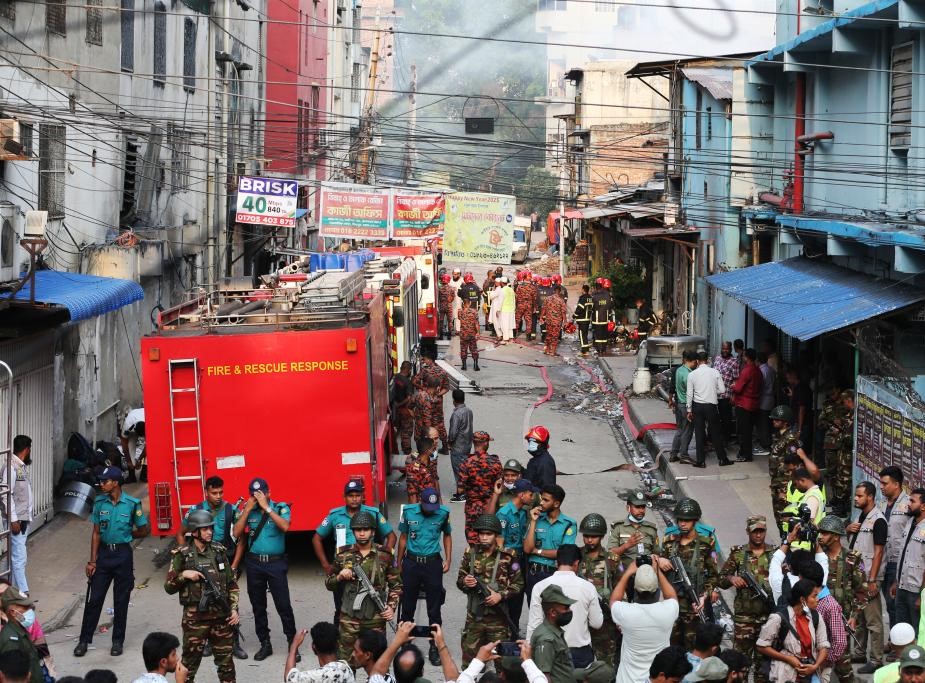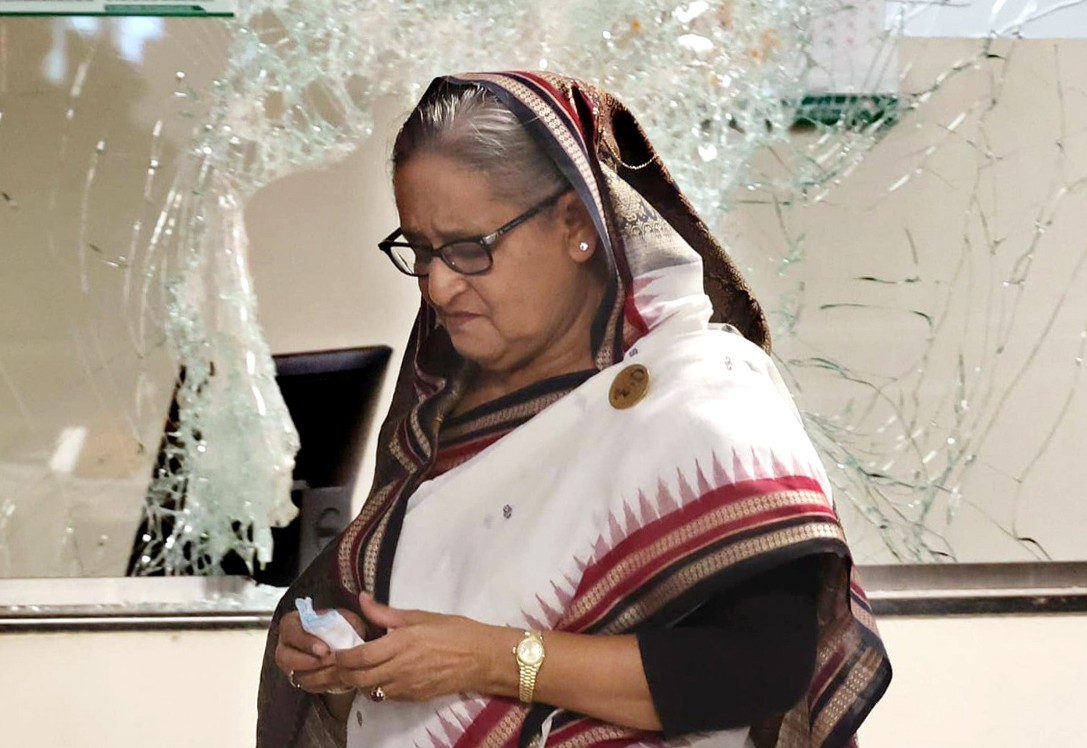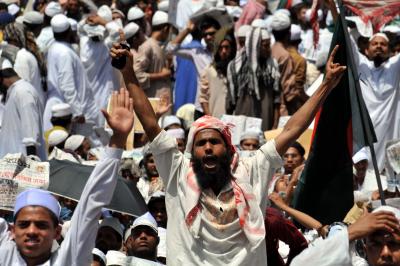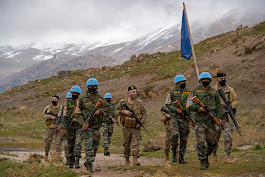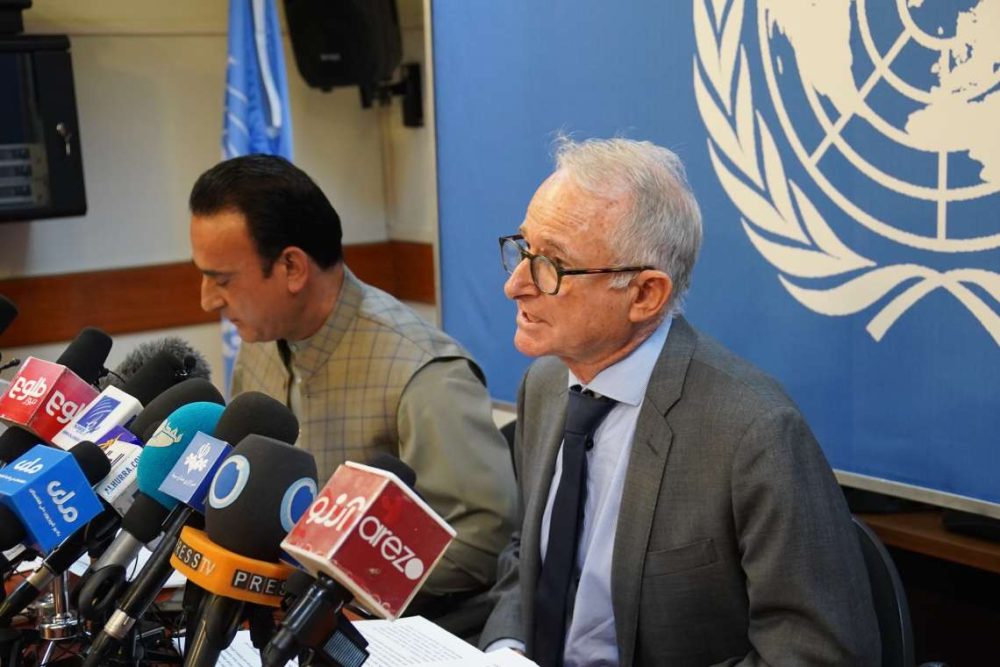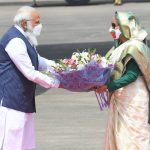The RRAG report highlighted the intensification of human rights violations under Yunus in the CHT of southeast Bangladesh…reports Asian Lite News
A Delhi-based rights group on Friday claimed that the interim Bangladesh government led by Chief Adviser Muhammad Yunus is excluding indigenous peoples of the Chittagong Hill Tracts (CHTs) and religious minorities from the Constitutional reform process.
While releasing the report “Conflicts In Bangladesh and Myanmar: The Threat To Regional Peace And Security”, the Rights and Risks Analysis Group (RRAG) during a meeting in the national capital on Wednesday told the diplomats of various countries that the interim Bangladesh government is excluding indigenous peoples of the Chittagong Hill Tracts (CHTs) and religious minorities from the constitutional reform process.
While addressing the envoys, RRAG Director Suhas Chakma stated that on October 6, the Bangladesh government notified a nine-member Constitution Reform Commission with no representative of the hill tribes in the CHTs and religious minorities included.
“Only one woman, Professor Sumaiya Khair, was included and this violates the basic spirit of the Jatiya Sangsad (Reserved Women Seats) Election Act, 2004 which reserved seats for women,” he said in a statement.
Chakma said: “The worldview of Yunus is exclusion of the vulnerable communities. The soft face of the Islamists in the country i.e. Yunus has come, and this exclusion is not something done by ex-President H.M Ershad and ex-Prime Ministers Begum Khaleda Zia and Sheikh Hasina.”
The RRAG report highlighted the intensification of human rights violations under Yunus in the CHT of southeast Bangladesh.
It said that from September 19 to October 1, the illegal plain settlers and Bangladesh Army led organized assaults on indigenous peoples in Dighinala, Khagrachari and Rangmati districts.
“The Bangladesh Army and the illegal settlers specifically targeted shops and other business establishments of indigenous peoples in the towns,” the statement read.
The number of indigenous people varied from four to nine persons and the RRAG presented a list of 75 indigenous people injured and 142 houses, shops and other business establishments, properties, and Buddhist temples that were looted, destroyed and set ablaze.
“Following these attacks, across the CHTs, the hill tribes have effectively been expelled from the Upazila/Sub District and District markets dominated by the illegal plain settlers. Indigenous peoples have been effectively barred from participation in economic activities in urban areas of the CHTs because of the segregation, communal tensions and the partisan law enforcement agencies and the administration,” Chakma stated.
Diplomats from Sri Lanka, Slovenia, Canada, Switzerland, Finland, European Civil Protection and Humanitarian Aid Operations Office, Guyana, Russia, the Netherlands, Kenyan, Philippines, Laos, Mongolia and Zambia participated in Wednesday’s (October 9) meeting.
Furthermore, area experts such as former India’s Ambassador Gautam Mukhopadhay, former High Commissioner Veena Sikri and former Ambassador Nengcha Lhouvum Mukhopadhaya and representatives of Carnegie Endowment for International Peace participated in the meeting.
The RRAG called upon the diplomatic community to intervene with the Bangladesh government for the inclusion of indigenous peoples in the decision-making of constitutional reform processes, recognition of the rights of the indigenous peoples and religious minorities in the proposed new constitution of Bangladesh, and grant of constitutional status for the CHTs.
The rights body also suggested establishing an office of the High Commissioner for Human Rights in Bangladesh and the establishment of an office of the United Nations High Commissioner for Human Rights in Bangladesh to enable it to investigate human rights violations in the CHTs upto October 1.
ALSO READ: Hindu Temples Targeted in Bangladesh, India Expresses Outrage



